
2016 Forbes Small Giants
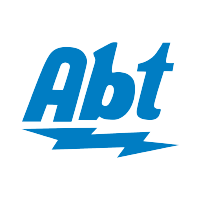
Abt Electronics
Abt Electronics is one of the last examples of a nearly defunct species of business: the family-owned, single-location electronics and appliance retailer. Jon Abt, one of four brothers who currently run the business, says Abt has survived the onslaughts of Best Buy and Amazon by truly providing what many businesses only talk about: great customer service.
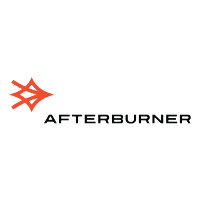
Afterburner
Afterburner was founded 20 years ago by Jim Murphy, a former Air Force instructor pilot, who says he’s interested only in people with “the warrior ethos.” The company’s specialty is teaching clients how to define and execute a business strategy with a military-inspired approach to teamwork.

Air Force One
Air Force One has become a regional giant despite its local focus. The company provides heating, ventilation and air-conditioning services to large, owner-occupied commercial buildings. CEO Greg Guy, whose father founded the company, says that most of his competitors are small operators with maybe $5 million in revenue, but his ambition is to keep growing.
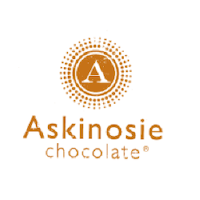
Askinosie Chocolate
In 2005, after 20 years as a criminal defense attorney, Shawn Askinosie turned to making chocolate. What really distinguishes Askinosie Chocolate is how it works with farmers in Ecuador, Tanzania, Honduras and the Philippines who supply the cacao beans used to make its chocolate.

Balsam Brands
Balsam Brands has succeeded despite selling the most seasonal of products and charging far more than its competitors. Mac Harman got the idea for the business shortly after he graduated from Stanford Graduate School of Business and noticed that his in-laws’ fake Christmas tree didn’t look much like a tree.
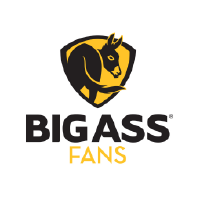
Big Ass Fans
Founded in 1999, industrial fan producer Big Ass Fans could have sought to sell its high-end (and high-priced) wares through big-box retail channels. Instead, founder Carey Smith chose to avoid them, relying on his own army of salespeople to educate customers.

Bi-Rite Market
Bi-Rite Market sets the standard for grocery stores that champion locally sourced products grown by small producers. It offers all staffers, including part-timers, health insurance, a 401(k) with a 4% match and profit-sharing. Sam Mogannam’s father and uncle ran the flagship store in San Francisco’s Mission District until they sold out in 1989.

Blink UX
Every year as many as two employees who best embody the values of Blink UX are chosen to become partners in the business, a consultancy that advises clients like Microsoft, Starbucks and Amazon on ways to improve their digital interaction with customers. While CEO Karen Clark Cole says the equity shares doled out are small, they are meant to show how much employees are appreciated.

Cue Ball Group
Cue Ball is attempting to reinvent venture capital–by not promising investors quick returns. It is adopting a Warren Buffett buy-and-hold strategy. Instead of hoping that one or two out of ten investments might succeed, it is aiming for ten out of ten.

ENT Institute
ENT Institute is a 17-location medical business in the Atlanta area that attracts doctors from across the country who specialize in treating ear, nose and throat ailments. Founder and CEO Dr. Jeff Gallups says his model allows him to charge less and pay top performers much more than they could earn in a regular private practice.
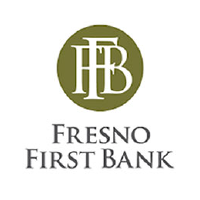
Fresno First Bank
Founded in 2005 to serve the banking needs of small businesses, Fresno First Bank has deliberately remained in a single location rather than opening additional branches. Not only has that kept costs under control, but it also allows the bank to retain a flat organizational structure.
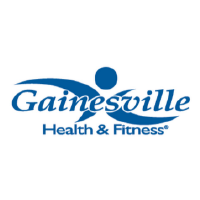
Gainesville Health & Fitness
Joe Cirulli has long believed that the ultimate measure of a fitness business should be the health of the community in which it is situated. In the early 2000s he and his management team set a goal of having Gainesville recognized as the healthiest city in America.

Headsets.com
It sometimes takes a crisis to discover the true character of a company and its leaders. Driven by legendary service and a fun-loving culture, Headsets.com had grown rapidly, reaching $30 million in revenue by 2007. But customers stopped buying in the recession, and sales dropped by a third. Although CEO Mike Faith had to lay off 30 of his 70 employees, he found new jobs for almost all of them.
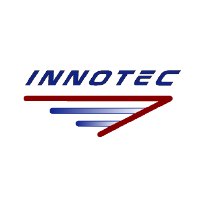
Innotec
Innotec, which makes lighting, applied metals and power-distribution products for the automotive, office-furniture and retail-lighting markets, uses a flat, decentralized organizational structure that gives each of its manufacturing lines, called “cells,” control over its own P&L and balance sheet. Those cells then report their operational and financial results to the rest of the company every month.
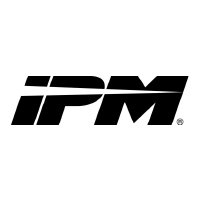
Integrated Project Management
Rich Panico learned from his father that “anything you do, you should do to last,” and so–even before he started Integrated Project Management in 1988–he resolved to build it to last 100 years. With that in mind, the first person he hired was someone who could replace him if he couldn’t continue for any reason.
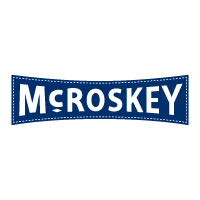
McRoskey Mattress
In 2003 Prince Charles stayed at a bed-and-breakfast in Marin County, Calif. and on his departure told the proprietress she should order McRoskey mattresses for all the rooms. McRoskey mattresses, judging from the comments of customers and online reviewers, are practically a religion for their owners, even those who are not royalty.
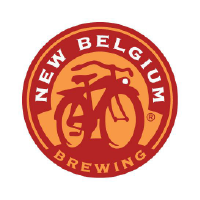
New Belgium Brewing
Back in 2013 the employees of New Belgium Brewing were called to an all-hands meeting, where Kim Jordan, the company’s cofounder and then CEO , took the stage to deliver big news. She told her employees she had just sold the company, a revelation that produced gasps. To whom? She asked the employees to open the envelopes that had been left on their chairs. Inside they found a mirror, which was Jordan’s way of announcing that she had sold the company to them.
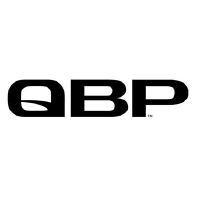
Quality Bicycle Products
Founded in 1981 by avid cyclists Steve Flagg and Mary Henrickson, who wanted to help bike stores get tough-to-find mountain bike parts from suppliers in Japan, QBP has become the nation’s largest wholesale distributor of bicycle parts and accessories, from helmets and bike racks to crank sets and ball bearings.

Radio Flyer
Antonio Pasin, who had learned cabinet-making on a Venetian estate, started manufacturing a wooden toy wagon in Chicago in 1917, first calling it “Liberty Coaster” for the Statue of Liberty, then changing the name in the late 1920s to Radio Flyer, to capture the fascination with early radio broadcasts and airplane flights.

Redmond
When a 1958 drought decimated their farm, brothers Milo and Lamar Bosshardt turned to mining the rich salt beneath it. In 1992 the family brought in Rhett Roberts, who repositioned Redmond’s reddish-hued salt as a premium product, emphasizing how it melted at a lower temperature than conventional white salt and boosting efforts to market it as superior for the dinner table.
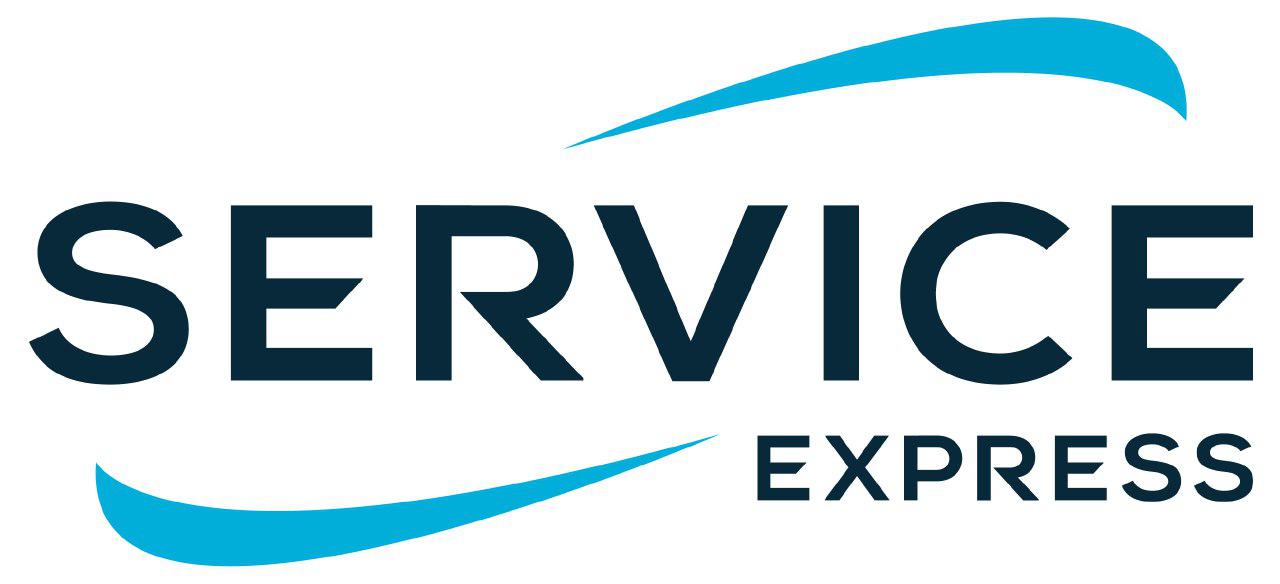
Service Express Inc.
When workers join SEI, which does on-site maintenance for companies’ data centers, including repairs, troubleshooting and installations, they meet with a manager to lay out their personal, professional and financial goals. These may include buying a first home, visiting distant parents, attending a child’s Friday football games or relocating to another city.
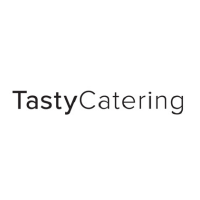
Tasty Catering
When an employee recognized that fuel prices were cheapest on Tuesdays and most expensive on Thursdays and Fridays, Tasty Catering changed the way it purchased fuel for its fleet of delivery vehicles and started saving $35,000 a year. That kind of engagement has resulted in profit margins that are nearly double the industry’s national average.

Torch Technologies
At most companies, proposals for government contracts are handled by senior managers. At Torch Technologies, which is 100% employee-owned and provides engineering services such as missile-systems modeling and simulation to the U.S. Army, everyone is encouraged to participate.
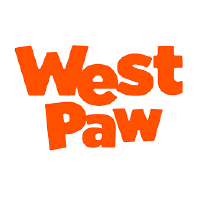
West Paw Design
West Paw Design is one of the companies defying the conventional wisdom that you can’t manufacture in the U.S. anymore. In fact, 99% of the company’s pet toys and beds, which use nontoxic, organic or recyclable materials, are made in Montana, which can hardly boast a legacy of manufacturing.

Zifty.com
Zifty stands out in the increasingly crowded field of restaurant- and grocery-delivery services because it’s been around since 2003. Founded by Todd Miller, it offered customers real-time tracking of orders before any of its competitors.
2017 Forbes Small Giants
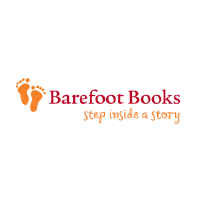
Barefoot Books
When Nancy Traversy started Barefoot Books in her home in England with Tessa Strickland in 1992, her eldest daughter was three weeks old. Twenty five years later, she has four grown children, and her business – now based in Cambridge, Massachusetts – has set the standard for excellence in children’s books, of which it has published more than 600 and sold more than 20 million around the world.
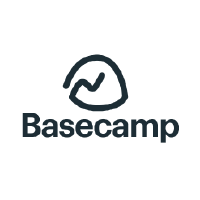
Basecamp
Jason Fried has turned down more than 100 investment offers from venture capitalists and private equity firms for Basecamp, which makes cloud-based software that provides small businesses with a centralized system that brings together internal communications, projects and client work in one location. Fried prefers slow, consistent and profitable growth of at least 5% a year—“so we can enjoy the culture of a small business.”

Dansko
In 1990, Mandy Cabot got the idea to import closed-back clogs from her husband’s native Denmark. They started by selling shoes out of the trunk of their car, but Dansko has since grown to more than $120 million in annual revenue and a product line that includes sandals, boots and sneakers. In 2005, they were set to sell the company to Timberland for more than $150 million but pulled out at the last minute, instead implementing an employee stock-ownership plan.
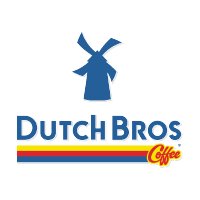
Dutch Bros.
Dutch Bros., a drive-through coffee chain, requires franchisees to spend a minimum of three years working for the company before applying for a franchise. Then it facilitates loans to cover the $30,000 franchise fee, buy equipment and pay for other opening expenses.

Essential Ingredients
The cofounders of Essential Ingredients have turned down multiple offers from private equity firms and competitors that wanted to buy the 15-year-old distributor of chemicals. Instead, they formed an employee stock-ownership plan. Company shares have shot from $2 to more than $55, driven by employee-led initiatives.

FreshBooks
Successful but speeding toward obsolescence, FreshBooks desperately needed to reinvent its online accounting service. Using the Lean UX methodology, FreshBooks started sending traffic to a new website called BillSpring. The service was offered free for the first year, and prospective customers began signing up. A few months later, BillSpring’s customers were informed that their service was now FreshBooks.
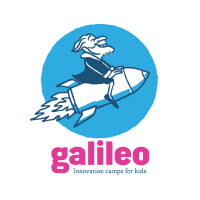
Galileo Learning
Drawing on a process developed at Stanford’s design school, Galileo Learning’s summer camps have themes like Medieval Adventure. Kids get the chance to create catapults and chalices and to construct a reinforced castle. “To be successful in the jobs of the future, kids need to be able to design and create,” says founder Glen Tripp.
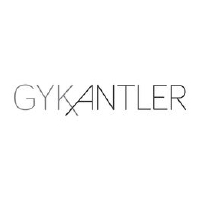
GYK Antler
On the surface, GYK Antler is just another regional ad agency and marketing firm, but dig a little deeper and you’ll see it’s actually a conglomeration of wildly different companies, including Noble & Cooley, a 165-year old drum maker; Iron & Air, a quarterly lifestyle and motorcycle magazine; and on and on.
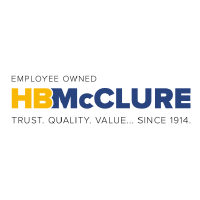
H.B. McClure
Bob Whalen walked away from a potential acquisition because the buyer paid technicians in the field commissions for making extra sales. He didn’t want his HVAC services technicians selling customers stuff they didn’t need. In 2010, he persuaded a reluctant board to approve a sale to employees at a valuation of $4.6 million. “I wanted to instill an ownership mentality,” he says. Revenue has more than tripled.

HED Cycling
For triathletes and professional bikers (including Lance Armstrong), HED Cycling has been a go-to place for fast wheels since Steven Hed started manufacturing them for his St. Paul, Minnesota, bike shop in the mid-1980s. But after Steven died suddenly in 2014, his widow and business partner, Anne Hed, was left to figure out what to do.

imageOne
In 2014, imageOne, a printing-services company founded in 1991 by childhood friends Joel Pearlman and Rob Dube, had profits of just $100,000 on revenue of $12 million. Since opening the company’s books to the entire staff, imageOne has seen profits climb to $1.2 million, and staffers have come up with a flood of initiatives that cut costs and boosted sales. Employee turnover in the last three years: zero.

Menlo Innovations
Menlo has such a distinctive way of making custom software—for example, all programmers work in pairs—that people pay to take tours of its office. Executives pay as much as $20,000 to hang out, and the total take from observers can be as much as $800,000 a year, making Menlo’s marketing department a profit center.

Motawi Tileworks
Nawal Motawi, 52, studied ceramics at the University of Michigan and learned tilemaking at Detroit’s Pewabic Pottery before founding her own company to make art tiles and do tile installations 25 years ago. The transition from artist to business owner wasn’t easy, but she eventually realized “I didn’t want to be the cute little art-tile place that never delivers on time and whose paperwork is all messed up.” In 2003, she adopted Toyota-style lean manufacturing techniques.

Nick’s Pizza & Pub
Nick Sarillo started Nick’s Pizza & Pub partly because he felt the community needed a family-friendly restaurant. A former construction worker, he was frustrated with the options available for his own family. In the next 15 years, Nick’s Pizza & Pub did indeed become a sort of community center.

NightLight Pediatric
Ten years ago, Dr. Anastasia Gentles spent hours seeing children with fevers and ear infections who wound up in an emergency room for lack of other options in those after-school hours when primary-care doctors were gone for the day. So Dr. Gentles came up with the idea of an urgent-care center just for kids and enlisted a friend from church, Zawadi Bryant, who was then an executive at BP and is now NightLight’s CEO.

OnceLogix
When Trinity Manning, Rod Brown and Ty McLaughlin founded OnceLogix a dozen years ago and created an electronic health-records system used by mental health providers, the idea of keeping medical records online was anathema. OnceLogix went directly to the consumer, cold-calling clients and going to conferences to spread the word. The result: Its software has gained traction in 11 states.
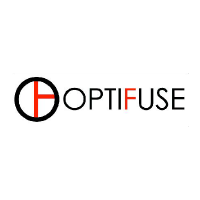
OptiFuse
Jim Kalb, 55, worked at two major players that make circuit-protection devices before founding his own company, Optifuse, to compete with the giants. The company hit tough times in 2009 when the industry went through an upheaval. “I had a come-to-Jesus meeting with my staff, and said, ‘You’ve got to get your resumes together.’ They came back later that day, and said, ‘What do we need to do as a group?’” The 100% family-owned company’s eight workers slashed their pay by 30%, and Kalb’s landlord agreed to take a 50% haircut.
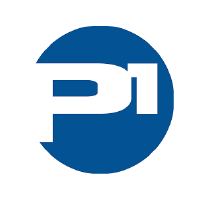
P1 Industries
Back in the day, Schenectady, once headquarters of General Electric, was a major center for manufacturing. So when David Dussault finished his studies at Union College, he went to work at GE, just as his father and grandfather had. Then, in 2006, Dussault decided he wanted to work on his own terms. He founded P1 Industries, which manufactures engineered parts largely for power plants.
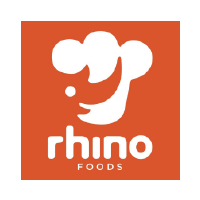
Rhino Foods
In 1981, University of Vermont assistant hockey coach Ted Castle and his wife, Anne, opened a small ice cream shop, where he worked evenings and weekends. Three years later, he quit coaching and added brownies and cookies, supplying dough to fellow Vermont business Ben & Jerry’s, where a staffer tried mixing Castle’s raw cookie dough into ice cream. The blockbuster flavor turned Rhino Foods into a leading producer of frozen dough and other dessert products.

SRC Holdings
In 1983, Jack Stack led a management buyout of a struggling factory and started a new business that initially remanufactured engines and is based on two big ideas: Employees can improve performance if given the tools to track it, and if you want employees to act like owners, you should make them owners.
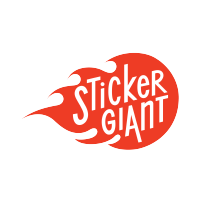
StickerGiant.com
StickerGiant is the only company on this year’s list that has earned a place in Guinness World Records—for producing the largest sticker ball in the world. Its name is Saul, and it was made out of stickers and labels manufactured by the company, which was also behind the decision of the registrar at National Day Calendar to make January 13 of every year the official National Sticker Day. But those aren’t StickerGiant’s most remarkable achievements.

SurveyGizmo
Christian Vanek started what became SurveyGizmo in 2005 at the suggestion of a client of a marketing company he worked for. The client, for whom he had created several surveys, asked why he didn’t automate the process. If he did, she said, she would send him customers, and he could repay her by letting her use the software for free.

W.S. Badger
“Badger Bill” Whyte stumbled into business in an effort to solve his own problem: Whyte, then a carpenter, found that his fingers were split and cracked from the harsh New Hampshire winters, and he started playing around with beeswax and olive oil to soften them up. By 1995, he was making Badger Balm in the back room of his house and selling it to stores in a wooden box.

turnerboone
When Laura Boone and Ellen Turner started their office-furniture dealership, they wanted the ambiance of a service-oriented boutique rather than that of a commodity business. Four years ago, they introduced open-book management and were shocked by their employees’ lack of financial knowledge—but also by the eagerness with which they embraced the program.
2018 Forbes Small Giants

Acceleration Partners
Acceleration Partners has been a leader in bringing transparency and accountability to affiliate marketing, long considered a digital dark art. The company has attracted clients like Reebok, Warby Parker and Target to connect them with partners—coupon sites, comparison sites, mommy bloggers—who get paid only if they drive business. Acceleration has won lots of best-places-to-work awards even though it doesn’t actually have a place: everyone works remotely.

Ace Metal Crafts
Jean Pitzo admits she had no idea how Ace Metal Crafts made its products—stainless-steel components for equipment used in the food-processing and pharmaceutical industries—when her father, who bought the company in 1982, retired in 1989 and turned it over to her. That wasn’t a problem, she says, because she trusted the employees to tell her what she needed to know. She shared the company’s income statement long before most other open-book companies.
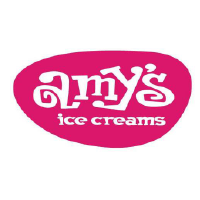
Amy’s Ice Creams
Amy’s Ice Creams solved a common challenge faced by businesses that rely on school-age employees: how to deal with turnover. Amy’s answer was to train employees not just to scoop ice cream but also to run a business. At Amy’s, all servers are trained in leadership and shift management; “pit boss” responsibilities are rotated. Amy’s offers formal classes in customer service, leadership and open-book management that can lead to an “MBAmy.”

Anisa International
Anisa Telwar Kaicker, who saw her mother build and then lose a $100 million import-export business, has been selling private-label brushes to cosmetics companies for more than 25 years, the last 20 of them profitably. During that time she has revolutionized the making of a product that had long been an afterthought—in part, by asking whether manufacturers, mostly run by men, actually knew what was the right brush for a particular type of cosmetic.

Atomic Object
Despite spending little on marketing and routinely turning away potential clients deemed a poor fit, Atomic Object has been profitable every year since its launch in 2001. But then Carl Erickson set a bigger goal—to be the first software consultancy to last 100 years. That goal has become a factor in almost every major decision—from choosing and financing a new location in Grand Rapids to opening in other cities to developing a succession plan.

Avid4 Adventure
Avid4 Adventure is a company for avidly adventurous kids. It runs outdoor summer camps and school programs for children pre-K through 12th grade. They participate in a range of outdoor activities such as rock climbing, mountain biking, kayaking, hiking and paddling. Their enthusiasm has led to company growth of 30% to 40% annually for more than a decade, with camps in Colorado and California.
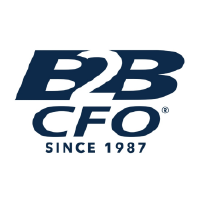
B2B CFO
B2B CFO, which offers part-time CFO services to businesses with up to $75 million in revenue, has never failed to turn a profit in 30 years and has never failed to increase profits. The company, which has also never taken debt or outside capital, specializes in helping Baby Boomer owners sell their businesses. Today the firm has more than 200 partners/consultants—many former owners or CFOs—in every major U.S. market.
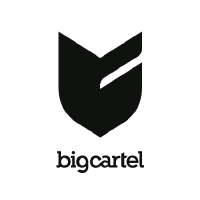
Big Cartel
Big Cartel helps artists, often notoriously allergic to commerce, sell their work in affordable, easy-to-erect internet storefronts. Matt Wigham came of age playing in bands, and he started the company in 2005 as a way to sell band merchandise online. But the company quickly pivoted and, in the 13 years since, has facilitated $2.4 billion in sales of artwork. It currently maintains sites for over 175,000 clients worldwide. The company offers employees 24 paid hours a year for a creative pursuit or community service.

Cambridge Naturals
Back in the 1970s, Michael Kanter says, there were many stores in the Boston area selling health and wellness products. Today Cambridge Naturals is among the oldest, thriving on customers who seek more than just a transaction. Kanter says his employees research not just the products and their ingredients but also the vendors, to make sure they behave ethically and treat employees well, which allows Cambridge to stock—and sell—rarefied products that other stores can’t, like coconut yogurt priced at $25.99 per pint.

Comfort Research
Comfort Research, which manufactures beanbag chairs, was founded by Chip George and Matt Jung when they were college students. Its motto is “Comfort for All,” which goes beyond the furniture and pool products it makes and sells under the name Big Joe, both online and through retailers like Target, Costco and Wayfair. The company, which has been profitable in 18 of its 21 years, donates 10% of its profits to local charities and goes out of its way to employ people who struggle to find jobs, including former prison inmates.

D’Artagnan Foods
It was not a business calculation that prompted Ariane Daguin to start D’Artagnan Foods in 1985 as one of the first antibiotic-free, farm-to-table companies in the meat industry; it was simply the way she learned the business in Gascony, France. “Growing up in my father’s restaurant,” she says, “that’s what I ate.” Starting with one truck and two employees, Daguin found her niche catering to high-end restaurants in New York City.

FONA International
Fewer than a dozen conglomerates control as much as 90% of the $14 billion flavor industry, but FONA International has gained ground by making itself a high-tech, high-touch alternative. FONA teams visit clients in food, beverage and medicine weekly, and sometimes even hand-deliver flavors, rather than ship them—and then adjust the flavors on-site as necessary.
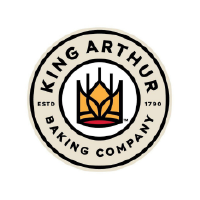
King Arthur Flour
King Arthur Flour traces its origins to an importer who set up shop on Boston’s Long Wharf in 1790. Today the company has a devoted nationwide following among home bakers for the purity and consistency of its flour. Organized as a B corp since the concept was launched in 2007, the company has been 100% employee-owned since 2004. With its three co-CEOs, it is in its fourth year of a multiple-CEO approach.
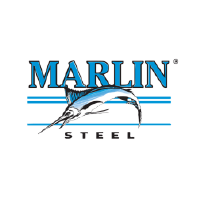
Marlin Steel
Two things went wrong for CEO Drew Greenblatt soon after he bought Marlin Steel, a manufacturer of metal bagel baskets, in 1998. First, the low-carb Atkins diet surged, which meant people started eating less bread and bagel chains started buying fewer baskets. Then Chinese manufacturers started selling the baskets for less than it cost Marlin just to buy its steel. So Greenblatt reinvented the company.
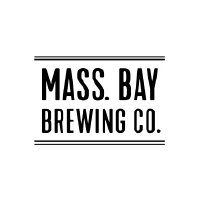
Mass. Bay Brewing Co.
In July 2014 Dan Kenary brought the employees of Mass. Bay Brewing—makers of Harpoon Ale and one of the first craft brewers—together to introduce them to the new owner of a large minority stake in the company. “You could hear a pin drop,” he says. “Then I said, ‘Shake the hand of the person next to you because you, the employees, are the new owners of 48% of the stock.’ And the place erupted.”
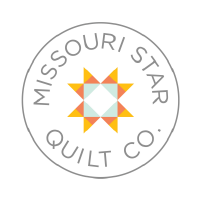
Missouri Star Quilt Co.
Bankrupt and relying on food stamps in California, members of the Doan family picked up and moved to Missouri, where they turned 60-year-old Jenny Doan into a YouTube star and the tiny town of Hamilton into the “Disneyland of Quilting,” attracting as many as 8,000 tourists a month. The family now has stakes in three restaurants, 12 quilting supply stores and an e-commerce site—and big plans for more.

The Motz Corp.
Joseph Motz made a good business out of the landscaping and lawn-care company he started in 1977, but in 1982 he reached the big leagues, literally, when the Cincinnati Bengals hired him to revamp their practice field. Today the company’s résumé includes six fields for the 2000 Summer Olympics in Sydney and several Super Bowl fields. Frontline workers get training and testing meant to guide them up the ranks.
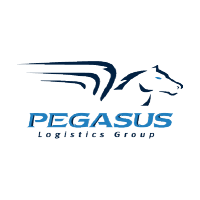
Pegasus Logistics Group
By 2012, Pegasus had reached $88 million in sales by offering a wide range of shipping services, and founder Ken Beam was looking to start another company in another industry. He hired a president who picked an executive team to run Pegasus with a fresh approach. Over the next two years, sales plummeted and employees left. A group of longtime employees took a plan to save the company to Beam, who did the dirty work of firing most of the executive team.

Text-Em-All
You wouldn’t expect to find a Small Giant in one of the most hated industries in America—namely, mass-messaging by telephone, otherwise known as robocalling. Yet that’s where the founders chose to start their business in 2005. They named it Call-Em-All, and its purpose was to provide a service to churches, schools, Little League teams and other organizations that need to send group messages to members. Doing mass-marketing by phone was never their plan.

Think Company
The founders of Think Company, a digital design firm, had seen this movie before: Lots of competitors had done great work, reached a certain size, sold all or part of their business—and lost what made them special. Carl White and Brian McIntire recently decided not to cash in, instead turning the company over to fresh leadership, whose goal is to grow organically.
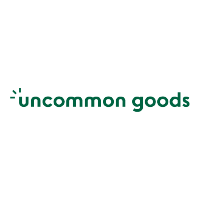
UncommonGoods
In 1999 Dave Bolotsky, a former Goldman Sachs managing director, launched UncommonGoods, an online retail platform that sells gifts, jewelry and home accessories made by independent artists and designers. It has enjoyed 13 straight years of profits. The company’s catalog is printed on recycled paper; no fur, feathers, pearls or leather goods are sold on the platform. The company’s lowest-wage earners take home double the federal minimum.

Vanderbloemen Search Group
You’ve heard the mantra “Everyone sells”? At Vanderbloemen Search, everyone blogs. Why? Because William Vanderbloemen, a former pastor who started a recruiting service for churches, knew he would have trouble enlisting religious organizations as clients if he was simultaneously poaching their employees. His answer was a strategy designed to eliminate blind poaching and attract both candidates and clients.
2019 Forbes Small Giants

Advoco
Advoco, which keeps track of equipment for the likes of PepsiCo and Starbucks, has every new employee sign a promise to be courageous, driven, innovative, honest, confident and knowledgeable. “If we don’t challenge our people to live those values, then we become just another consulting firm,” president Marty Osborn says.
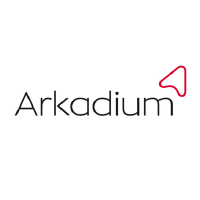
Arkadium
In 2001 husband-and-wife team Jessica Rovello and Kenny Rosenblatt founded Arkadium, a creator of interactive content for digital publishers, and soon acquired a gaming studio in Crimea, where costs were low. When Russia invaded in 2014, the studio and everyone in it relocated to a nearby Russian city. “It’s not that often that companies have to move their entire staff from one country to another,” Rovello says.
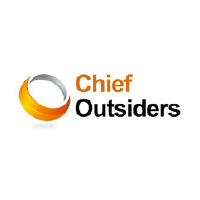
Chief Outsiders
Chief Outsiders’ network of 65 CMOs-for-hire take on as many projects as they want and keep 50% to 85% of what their clients pay, guaranteeing them flexibility and control over their jobs. They also get a long-term incentive plan that can earn them equity.

ChoiceOne
Company president Matt Hoying turned down a million-dollar contract with a city in Ohio at his civil engineering firm partly because his employees would have lost control over their work. He allows all of them, even part-time ones, to own shares. “We could go backward and be a $5 million company and still be successful, as long as we were true to our purpose, vision and mission,” he says. Company profile

Community Impact Newspaper
In 2005, John and Jennifer Garrett started a newspaper in their home in Texas. Today they publish 30 editions in 50 small communities from Arizona to Tennessee. The papers feature hyperlocal articles, and advertisers find them better for reaching customers than online alternatives. The company has done so well that the Garretts have opened their own plant, which not only prints newspapers but also keeps busy handling all kinds of jobs for other customers. Out front a sign says: “Print Ain’t Dead.”

Evergreen
Whenever real estate developer Evergreen invests in a new project, every employee can invest, too. Some staffers may retire as millionaires thanks to that policy. It’s no surprise, then, that almost a third of the workforce has been there for over a decade. They also enjoy profit sharing and annual trips abroad to support struggling communities.
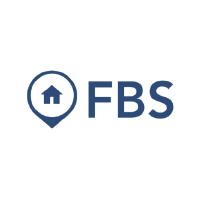
FBS Data Systems
Paul Wurzer started his business, which provides technology to support real estate transactions, in 1978. When it moved to the Web, he handed the reins to his son, Michael, to oversee the transition. Michael decided to emulate the partnership setup at the law firm where he had worked, and in 2005 he launched an employee stock ownership program.
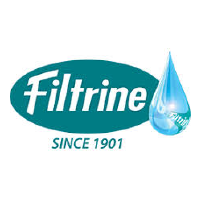
Filtrine Manufacturing
Filtrine was born in 1901, in the garage of a Brooklyn inventor. President Peter Hansel’s family has run it since 1918. It makes custom water systems such as a chiller to cool a Boeing rocket and parts of Varian medical radiation devices. The company’s commitment to building its products in the U.S. and avoiding mass production has driven up its prices and cost it major clients like Coca-Cola and GE.
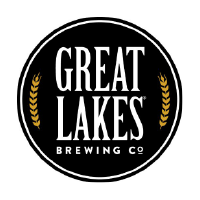
Great Lakes Brewing Company
Last year at Great Lakes’ annual off-site summit, its two founders told all the employees, “Everyone’s a winner. So get in line to pick up your prize.” The prize: a new employee stock ownership program. “What a moment it was,” then-CEO Bill Boor said. “There were hugs and tears and high fives.”

Harvest Group
CEO Ross Cully worked for Procter & Gamble’s Walmart team before he and two colleagues left to start their own business managing small brands’ relationships with big retailers. “It’s more fun to know the people,” he says, and his emphasis on customer care is mirrored by in-house benefits. Employees get four weeks of paid vacation on starting, matching of charitable giving and profit sharing.

Henderson
Early on, some of his fellow oilmen found Dan Henderson pretty far out when he talked about running a “values-driven” company with a culture based on “integrity, truth and transparency,” but his 13-year-old business has thrived. In 2017 it acquired a drilling company and became a full-fledged rig remanufacturer and service outfit. “We’re changing the definition of what is a great service provider’s customer relationship,” says company president Jim Lank.

Inspira Marketing
Jeff Snyder’s agency creates marketing stunts like a recent virtual Jeep ride at the Aspen Winter X Games that he calls “an immersive 4-D experience.” He makes the company culture immersive too, kicking off each year with a team-building retreat at a resort like Mohonk Mountain House and taking the staff to Mexico or Jamaica as a reward for reaching its revenue goals. “If we can make people happy and passionate about work, that will translate into the product,” he says.
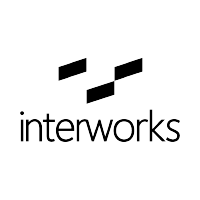
Interworks
Last year this IT and data consultancy’s revenue jumped 39%, but Behfar Jahanshahi keeps a close grip on growth. He gave up a large social media account that was too hard on his people and has let go of clients who were tough to deal with. He also has turned away many would-be investors since launching in 1996.

Life’s Abundance
Life’s Abundance has been making and selling healthy pet food since 1999, and it’s never had a product recalled, a record that makes CEO Lester Thornhill, a native Trinidadian, proud. It relies on customers to market its products, as in multilevel marketing, but with a crucial difference: There are no quotas, and no one is required to buy or sell anything.

LiveData
LiveData had been around for 22 years when Jeff Robbins’ son died, in 2013, and he changed the company’s focus to healthcare, because he wanted to make “something meaningful,” he says. Now the business concentrates on operating-room software and has taken on a partnership with Salesforce and a deal to supply Australian hospitals.

Outdoor Pride
The Aquilinos founded their landscaping and snow-removal business in 1988 and passed it on to their son Mark in 2015. Mark decided to focus on improving his people’s connections to one another and to their work, and as a result, annual employee retention has risen from 45% to 85%. “We really like to use Outdoor Pride as a vehicle to motivate others to give back,” he says.

PFSBrands
Shawn Burcham, 48, regrets that he didn’t start reading books until he was 40. Now he requires the senior leadership team at his food service company to read at least 12 a year. In 2011, inspired by The Great Game of Business, he switched to an open-management model. After reading Good to Great he restructured and made sure he had “the right people on the bus.”
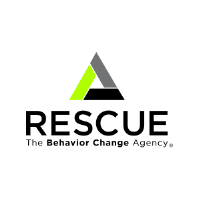
Rescue Agency
Marketing firm Rescue Agency has come up with a unique way to deliver its public health messages. It studies the group it’s targeting and figures who can best speak to its values and priorities. Drag queens deliver its antismoking pitch to the LGBTQ community and rappers star in videos aimed at teens.

Solugenix
You wouldn’t expect to find a Small Giant in one of the most hated industries in America—namely, mass-messaging by telephone, otherwise known as robocalling. Yet that’s where the founders chose to start their business in 2005. They named it Call-Em-All, and its purpose was to provide a service to churches, schools, Little League teams and other organizations that need to send group messages to members. Doing mass-marketing by phone was never their plan.
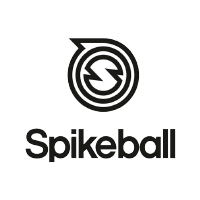
Spikeball
Chris Ruder fell in love with roundnet, an obscure volleyball-inspired sport with a trampoline-like net. Then in 2008 he raised $100,000 from family and friends to launch a company making equipment for it. At first he sent a personal note to every customer. In response, parents wrote back about their children’s passion for the game. Soldiers in Afghanistan sent him photos from the war zone.

The Indigo Road
Steve Palmer began his group of 20 restaurants in the Southeast ten years ago, and after his fifth successful opening he started worrying about how to ensure growth in a high-failure industry. “I wanted my management team to drill down on how to better identify people,” he says. The company now looks for new hires with drive, a work ethic, curiosity and a collaborative spirit.

Venturity Financial Partners
By 2016 Venturity was already larger than most accounting firms that serve small businesses, but it wasn’t making enough to invest in the solid growth that Chris McKee considered essential. He found the answer in an open-book management system developed at SRC Holdings—a 2017 Forbes Small Giant.

Waldron Private Wealth
John Waldron opened his business in 1995 with the idea that comprehensive wealth management should provide more than just investment strategy, so it advises on trusts and estates, business assets and other concerns. It now has 175 clients and $2 billion in assets under management—and turns down clients who Waldron feels aren’t “a good fit.”

Webit Services
Eric Rieger says he gets five or six approaches a week from would-be acquirers of or investors in his IT services provider, but the company isn’t for sale and is already growing as fast as he wants. He does have a future buyer in mind, though: his employees, provided the company reaches certain targets by 2021.

wikiHow
Men may dominate the upper echelons at most companies in Silicon Valley, but wikiHow’s CEO is an engineer named Elizabeth Douglas, and 55% of the staff is female. The shared goal of building the world’s best and largest how-to website—it now has 180,000 articles—has guided every major decision at the company, from turning down venture capital investments to walking away from tempting acquisition offers from larger businesses.
2020 Forbes Small Giants

AM Transport Services
AM Transport has provided outsourced logistics services to manufacturers and distributors for 30 years. The company prides itself on its people-first culture, which can be traced back to founder Avery McKinney, who would quietly help employees with their finances. His son, CEO Michael McKinney, has carried on his mission “to profoundly impact the lives of people and our community,” and in doing so has cultivated a dedicated workforce.
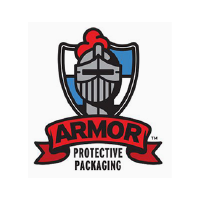
Armor Protective Packaging
Since 1979, Armor Protective Packaging has sought to help customers combat rust through their line of anti-rust products and patented vapor corrosion inhibiting nanotechnology, which coats metal in a shield of ultra-thin, rust-preventing ions. While technology is core to the company’s mission, so too is its corporate culture. “We take our jobs seriously, but not ourselves,” says co-owner Dave Yancho, who looks to engage employees through regular team breakfasts and volunteer opportunities.
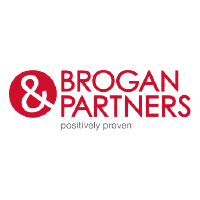
Brogan & Partners
Brogan & Partners is a full-service marketing and advertising agency whose clients include the Michigan Department of Health and Human Services and Oakland University. Founded in 1984, the company gives back to the community by donating 5% of its annual revenue to pro-bono and volunteer work, as well as charitable donations. “We’re incredibly dedicated to our community and focused on making a positive difference in people’s lives,” says CEO Ellyn Davidson.

Camp Gladiator
Started by Ally and Jeff Davidson in 2008, Camp Gladiator runs a network of 1,000 personal trainers that host hour-long full-body workout sessions for large groups. Trainers work as contractors, and handle space rental and marketing in exchange for 75% of profits. The two started the business immediately after Ally won the second season of the relaunched American Gladiator. Due to the coronavirus pandemic, the company has pivoted to remote workouts, offering some 10,000 sessions a week.
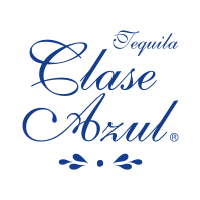
Clase Azul Tequila
Since 1997, Clase Azul Tequila has been producing fine tequila and mezcal, not to mention the handcrafted ceramic decanters in which their spirits are packaged and sold. While headquartered in San Francisco, its products are made in the mountainous Mexican town of Santa Maria Canchesda, population 1,750. Of the 180 employees who work at this Clase Azul location, about 80% are women who grew up in poverty and without access to basic education. Founder Arturo Lomeli, along with business partner Juan Sanchez, provide them with two meals a day, transportation, day care and school tuition, and in the process have helped to revitalize the local economy.

Cohen Architectural Woodworking
When Phil Cohen started making wooden porch swings in a neighbor’s barn, he had no intentions of launching a business. Rather, it was a way to recover from a life of drug abuse and incarceration. But one thing led to another, and in 1982, Cohen Architectural Woodworking was born. Cohen has won awards from the American Woodworking Institute for its cabinets and furniture, most of which the company sells to corporate clients through general contractors. Through his business, Cohen strives to help those in need, hiring the formerly incarcerated and those recovering from addiction.

Consuela
Consuela designs and sells bags and accessories, all of which are brightly colored and adorned with labels that read “Make Today Ridiculously Awesome!” Founder and CEO Conni Reed sells her wares from two shops in Austin, Texas, as well as online and in as many as 800 retailers across the country. Reed takes pride in the role her business plays in supporting 300 Mexican craftspeople, whose art is incorporated into 99% of her products. She also strives to celebrate women making a positive difference in the world by gifting them bags through Consuela’s “It’s Not About The Bag” program.
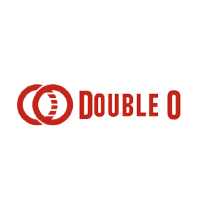
Double O
Prior to founding glass-installation company Double O in 1997, Michael Otis owned another similar business, one that imploded upon being sold. Embarrassed, he didn’t want his new construction venture to have anything to do with glass, but his customers had other ideas. More than two decades later, and commercial glazing makes up 100% of Double O’s business. Otis has sought to create a culture “that puts our people first in all our decisions.”

Edoc Service
When Jim Mullaney started Edoc Service in 1997, he set out to build “a company where people could work at home, have a career and have a life.” Some 23 years later, his 10 employees and 70 contractors provide marketing and administrative services to thousands of doctors’ offices and small businesses from the comfort of their homes.
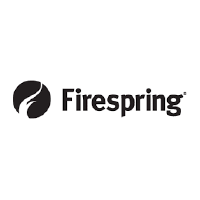
Firespring
Firespring is a marketing, printing and website-development company that works with clients in 50 states and 14 countries. In 2002, one decade after he had founded the business, Jay Wilkinson was fired as CEO by the investor-led board of directors after refusing to lay off employees amid the economic downturn that followed 9/11. Four months later, with the help of family and friends, Wilkinson bought out the venture capitalists.

Gongos
In 1991, John Gongos set out to start a market research firm with a people-first ethos. When the 51-year-old founder died suddenly in 2012, it didn’t take long for competitors to swoop in with M&A offers. “We still had so much untapped potential, and we wanted to be in control of that,” says Camile Nicita, who succeeded Gongos as president and CEO. To ensure the business stays true to its founder’s vision, Nicita interviews every job candidate, including interns.

Headspring
Named for the source that feeds a stream, Headspring has been providing software solutions to businesses in sectors including education, manufacturing and retail since 2001. “We’re a team that feeds lasting value to your organization, as opposed to being a separate entity,” says founder and CEO Dustin Wells, who believes that a brand can be defined by its culture. Amid the coronavirus pandemic, he’s held weekly team meetings to share coping mechanisms in an effort to help his employees manage their anxieties.

Health & Wellness Partners
Founded in 2005, Health & Wellness Partners provides pharmaceutical companies and health practitioners with educational materials, such as information about rare drug interactions and diagrams for doctors’ offices. “I went through systems that created barriers to success because I was a woman. I knew there had to be greater opportunities,” says founder Jani Hegarty. “By creating my own shop, guess what? There’s no ceiling.”

Heath Ceramics
When designers Robin Petravic and Catherine Bailey bought Heath Ceramics from the Heath Trust in 2003, the business had been struggling for years. What started as a small pottery business in 1948 had veered into wholesale, and the new owners wanted to get back to basics, selling direct-to-consumer through retail showrooms. They also wanted to keep every single employee, some of whom had worked at Heath for 50 years. The duo succeeded on all counts.
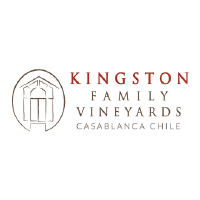
Kingston Family Vineyards
Since 1998, Kingston Family Vineyards has been farming organic red-wine grapes in Chile’s Casablanca Valley, a region known for its white wines. In doing so, Courtney Kingston, has created a new market, not to mention a tourist destination, earning TripAdvisor’s Certificate of Excellence for the past six years. While they farm in Chile, the business is headquartered in Portola Valley, California, a 20-minute drive from the Stanford Graduate School of Business campus.
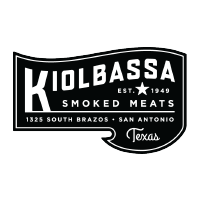
Kiolbassa Smoked Meats
Michael Kiolbassa had been running his grandfather’s hand-crafted smoked meats business for two decades when, in 2009, he knew he had to make a change. “The culture was pretty much the same as it had been under my dad—a benevolent dictatorship,” Kiolbassa says. Exhausted, he took time off to clear his mind and returned with a plan to revitalize the 60-year-old business. “We adopted values-based leadership in 2012 and spent over six months identifying our vision, mission and core values,” he says.
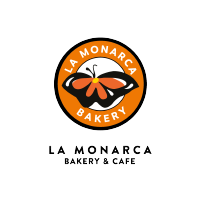
La Monarca Bakery & Café
“No one walks angry into a bakery,” says Ricardo Cervantes, founder of La Monarca Bakery & Café. That’s one reason why in 2005, he and cofounder Alfredo Livas decided to open a chain of bakeries after studying at the Stanford Graduate School of Business. Born and raised in Mexico, Cervantes and Livas wanted their business to serve as a bridge between two cultures. As such, they named it for the monarch butterfly, which migrates 3,000 miles twice a year between Canada and Mexico.

Mojo Media Labs
Michael Rose founded full-service marketing agency Mojo Media Labs in 2008, but the company didn’t really take off until 2019, when it acquired Indianapolis-based digital agency SpinWeb. Mojo’s open-book management style, coupled with SpinWeb’s results-only work environment, engaged employees like never before, and the business followed. “Happy people equal happy clients,” Rose says.
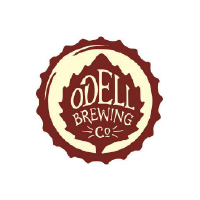
Odell Brewing Company
Odell Brewing Company may be among the best craft breweries you’ve never heard of, that is, if you live on the coasts. For the past 31 years, the award-winning brewery has only sold its beers as far west as Nevada and as far east as Illinois, with 65% sold in its home state of Colorado. Key to the business’ success has been its leaders’ ability to identify critical changes in the market, and its employees’ ability to adapt accordingly. In preparation for their exit, cofounders Wynne, Doug and Corkie Odell sold 19% of the company to an employee stock ownership plan and 51% to the executive team.
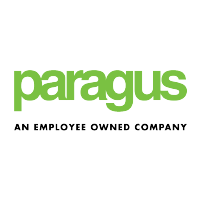
Paragus
Call Paragus’s office, and you’re greeted by the voice of Morgan Freeman. Recordings from The Shawshank Redemption spice up the firm’s phone tree, part of Delcie Bean’s mission to make IT fun for clients and employees alike. In 2016, he implemented an employee stock ownership program and began airing weekly YouTube addresses to his staff to provide full transparency on the company’s ongoings. “I explain it as: ‘I’m speaking to you not as employees, I’m speaking to you as my business partners,’” Bean says.
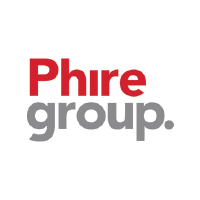
Phire Group
Founded in 2004, Phire Group is a marketing and advertising agency that defines and supports national brands while also helping community businesses. Through its annual BonPhire competition, the company gives nonprofit organizations the chance to win $50,000 worth of branding services. “The goal is for my team to choose one organization which we can have the most impact with,” says founder and principal Jim Hume. “The real impact that we have is through the work that we do every day.”

Radeus Labs
Juliet Correnti purchased software solutions company Radeus Labs from her parents, Ray and Duvina Hayden, in 2015. Her institutional knowledge, coupled with business partner Kenneth Cone’s corporate experience, have enabled them to turn a profit each year since the sale. Radeus Labs champions its customers, and Correnti, who is CEO, says they are the reason she’s turned down offers from private equity firms to grow faster.

Smiley Technologies
The Smiley siblings grew up in the datacenters of their father’s software company, where they had a front-row seat to the work he did to support small and midsize businesses, most of which were banks. When he sold the company in 1990, Elizabeth and Vance noticed that many local financial institutions no longer had access to the technological services they needed to succeed, and so in 2002 they launched Smiley Technologies to fill the gap. The business has seen a 87.5% renewal rate of customer contracts over the past five years, not to mention 100% employee satisfaction, per an anonymous staff survey.

SmugMug
When Don and Chris MacAskill launched photo-sharing platform SmugMug in 2002, they wanted to give anyone with a camera the space to store, share and sell their work, not to mention access to exceptional customer service. Rather than relying on outside funding, they decided to make SmugMug a paid platform, their way of ensuring users would always come first. The move, while controversial at the time, as other similar services were free of charge, has made all the difference: Not only has the business outlived many of its competitors, but it’s even acquired a few, most recently Flickr in 2018.
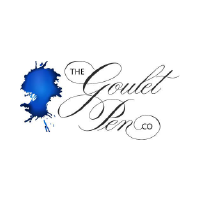
The Goulet Pen Company
After two years spent selling handmade wooden pens as a hobby, in 2009 Brian and Rachel Goulet launched Goulet Pens and made it their full-time gig. The two dove headfirst into the online community of fountain-pen enthusiasts and started producing informational videos, blog posts and reviews, all in the name of becoming a trusted resource. Despite numerous offers from pen manufacturers to expand their selection, the company has stuck to its old-school roots.
Get Involved with Small Giants
Discover opportunities to support our community through sponsorship or donations, and explore the exciting speakers, activities, and more at our Summit event.
